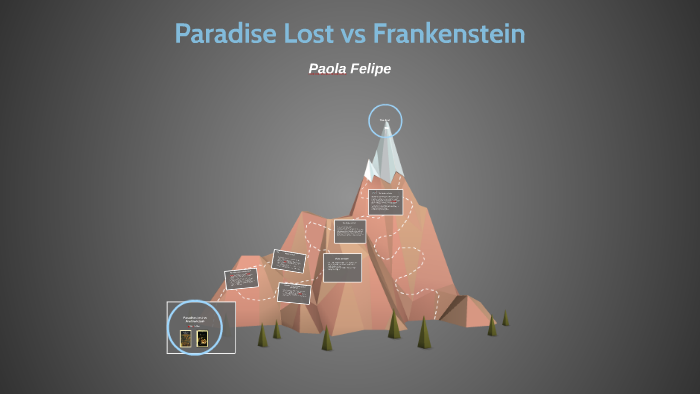

In Frankenstein, Victor Frankensteins thirst for. The novel proves unexpectedly sympathetic to Paradise Lost 's Reformist ethos. In Paradise Lost, fruit from the Tree of Knowledge causes the fall of man and introduces humanity to sin. Its difficulty is the result of a combination of factors. 5 Beyond this, deeper attention to Miltonic intertextuality reveals quite a different sensibility in Frankenstein than we are accustomed to seeing. Paradise Lost is an incredibly difficult poem even those who have read it multiple times still have trouble with certain parts, and it still takes a lot of patience (and time) to read through it. into the limited and limiting ontology of Milton's Paradise Lost," a work Lamb understands to have a "monologic and monolithic voice." 4 Granting that Milton's epic might be more open-ended than Lamb allows, and tracing the specificity of allusive play, challenges the supposition-common to Lamb, Virginia Woolf, Harold Bloom, Gilbert and Gubar, and others-that Milton is always an inhibiting, oppositional figure for Shelley (and women writers generally).

In Frankenstein, Victor is the creator of what is known as the monster. Lamb's thorough discussion of Frankenstein 's engagement with Paradise Lost suggests that "the monster's history can be read as a fall. Paradise Lost and Frankenstein are both stories of creators, and their creations. " 2 I shall argue, however, that Romanticists have not always attended to the depth, nuance, and care of Shelley's Miltonic exegesis. Frankenstein critics have remarked on Shelley's prolific Miltonic allusions and understood the novel as "a version of the misogynistic story implicit in Paradise Lost. Shelley's literary progenitor John Milton haunts Frankenstein as least as much as her genetic forebear. After reading the novel, the creature comes to have feelings regarding.

1 In the 1831 edition the epigraph is followed by a dedication to Shelley's father, the radical political philosopher (and far from solicitous parent) William Godwin. The creature, in Mary Shelleys Frankenstein, finds Paradise Lost and begins to read it. Printed just below the title of both the 18 editions of Mary Shelley's Frankenstein, the Miltonic Adam's plaint "Did I request thee, Maker, from my Clay / To mould me Man? Did I sollicit thee / From darkness to promote me?" (10.743–45) leads off Shelley's "ghost story," as Shelley presents it, of a Creature dismayed by the conditions of its creation.


 0 kommentar(er)
0 kommentar(er)
